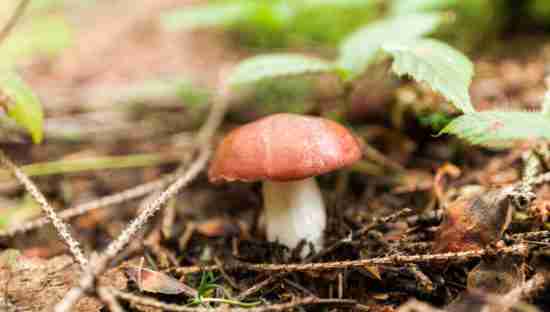The Michigan Department of Agriculture and Rural Development is reminding mushroom hunters that their wild-foraged treasures intended for sale must be inspected by a certified mushroom expert to help control food poisoning. The MDARD also announced that all certifications set to expire in 2020 have been extended for one year. Certification must be renewed every five years.
This certification extension comes after the untimely passing of the Midwest American Mycological Information (MAMI) Executive Director Chris Wright, according to the state department. Wright was a nationally recognized mushroom expert and researcher at Michigan State University. He instructed MAMI certification exams. The certification and training courses have been suspended for 2020 as the organization looks for someone to succeed Wright beginning in 2021.
Michigan’s Food Code requires wild-foraged mushrooms to only be sold by mushroom identification experts or after being inspected individually by an expert.
Rules regarding wild mushrooms vary by jurisdiction, but many states’ food codes include safety controls.
“Wild mushrooms, like morels and chanterelles, help define the forests of Michigan and provide potential income streams for foragers, farmers, restaurateurs and food entrepreneurs,” said Tim Slawinski, MDARD Food and Dairy Division director.
“However, if improperly identified, mushrooms can pose serious health risks. If you are purchasing wild mushrooms, you should only purchase them from a certified mushroom identification expert, as required by Michigan’s Food Code, to assure they are safe and edible.”
Many edible mushroom species grow wild in Michigan, however, there is risk involved because of toxic and poisonous species. These toxic species include lookalikes that can cause serious illness or even death when eaten. This is why it is important that a certified mushroom expert properly identify the mushrooms.
“Please enjoy hunting for and eating your favorite wild mushrooms, but make sure you know how to properly identify them,” said Slawinski.
“If you plan to sell your wild mushroom harvest, you must be a certified mushroom identification expert or have the mushrooms inspected by one; and if you operate a store or restaurant and plan to purchase mushrooms for resale to your customers, they must be purchased from an approved source and individually inspected by a certified mushroom identification expert. Finally, if you’re purchasing wild mushrooms, especially online through social media platforms, always ask for proof of certification before purchasing any mushrooms.”
Mushroom poisoning can range from an upset stomach to death. Common symptoms include, vomiting, diarrhea, abdominal pain, weakness, lethargy known as jaundice. Illness and death can come on quickly in some instances.
Anyone suspecting mushroom poisoning should get immediate assistance and call the Michigan Poison Control Center 800-222-1222.
For information about mushroom identification experts in Michigan or how to become certified, visit the Midwest American Mycological Information website.
Illegal sales of wild-forged mushrooms can be reported to the Michigan Department of Agriculture and Rural Development at 800-292-3939.
(To sign up for a free subscription to Food Safety Website, click here.)

